Creating a stunning swimming pool in your home is a dream come true. Whether you envision a tranquil oasis for relaxation or a lively gathering spot for family and friends, a well-designed swimming pool can transform your property. In this blog post, let's explore the swimming pool construction for homes.
Why Should You Have A Swimming Pool?
Swimming pools are often considered as a luxurious addition to homes but offer enormous benefits beyond the status and aesthetics. Many construction companies in Chennai are approached with the intention of constructing homes with a swimming pool as it has numerous benefits in respect of physical, mental, social status, and land appreciation, making them valuable assets for the owners.
As mentioned earlier, a home swimming pool provides numerous benefits for physical health, intellectual well-being, social interaction, and belongings fee. Firstly, home pool offers a full-body or physical workout, improving cardiovascular fitness, and flexibility. It also aids in weight control and rehabilitation from injuries. Mentally, swimming reduces stress, improves attention, and enhances sleep quality.
Socially, a pool serves as a point of focus for the circle of social bonding, making visitors excited, and growing swimming skills. Economically, a well-maintained pool can increase asset costs and offer a competitive side within the property market. It's a long-time funding that adds luxury and convenience to everyday existence.
Hence, having a home pool means enjoying a private oasis and our top architects in Chennai customize it to personal preferences with various advancements. A swimming pool enriches life by providing a versatile space for exercise, relaxation, and social activities, making it a valuable addition to any home.
CONSIDERATIONS BEFORE CONSTRUCTING A SWIMMING POOL:
Before constructing the swimming pool, there are a few things to consider so that we can avoid the problems that might arise in the future after construction and improve the experience of the swimming pool’s function.
1. Climate and Weather:
- South India experiences a tropical climate with high temperatures and humidity.
- Consider the prevailing weather conditions, including monsoons and intense heat, while choosing the pool design, materials, and maintenance systems.
2. Space and Landscape:
- Evaluate the available space in your home and how it can be best utilized for the pool.
- Take into account any existing landscaping, structures, or potential obstacles that may affect the pool's location, shape, or size.
3. Purpose and Lifestyle:
- Determine the primary purpose of your swimming pool, be it recreational, exercise, or aesthetic.
- Consider your lifestyle, preferences, and the needs of your family to select the ideal pool features, such as depth, shape, and additional amenities like waterfalls, slides, or Jacuzzis.
TYPES OF SWIMMING POOLS:
Let’s first get familiarised with the types of swimming pools before planning, to get an idea of their usage and characteristics.
1. In-ground Pools: These pools are built into the ground and offer a wide range of design possibilities. They are durable, customizable, and can enhance the overall aesthetics of your home.
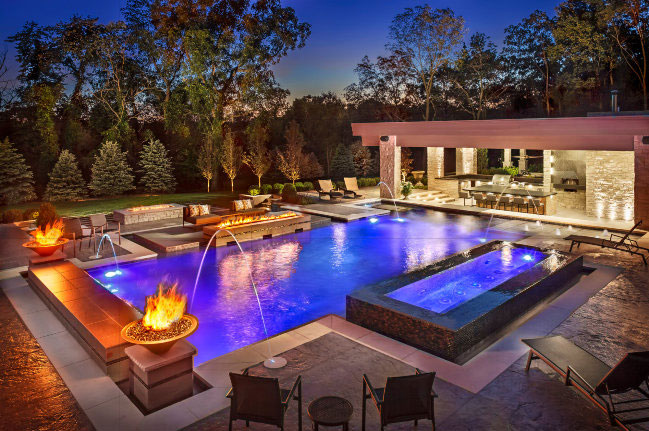
2. Above-ground Pools: If you have limited space or a smaller budget, above-ground pools are a popular choice. They are easy to install and can be customized to suit your needs.
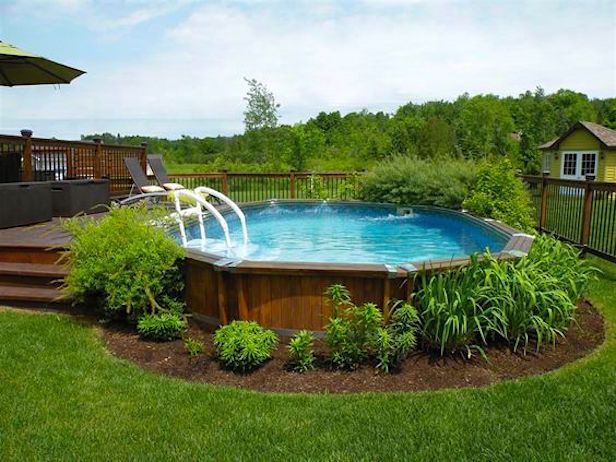
3. Infinity Pools: Ideal for properties with a scenic view, infinity pools create a visually stunning effect where the water appears to merge with the horizon. They require careful design and engineering to achieve the desired visual impact.
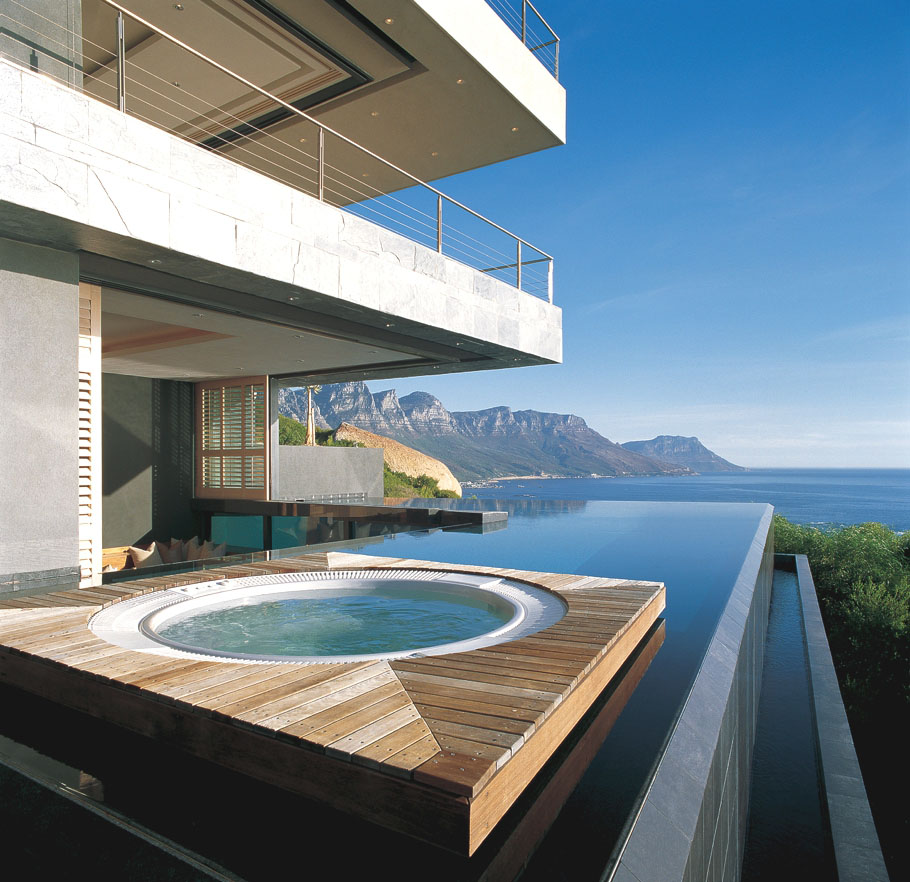
PROCESS OF SWIMMING POOL CONSTRUCTION:
1. Design and Planning:
- Consult with professional pool designers and architects to discuss your vision, preferences, and budget. They will assess the available space, topography, and any specific requirements unique to your property.
- Detailed plans and 3D renderings will be created to visualize the final pool design.
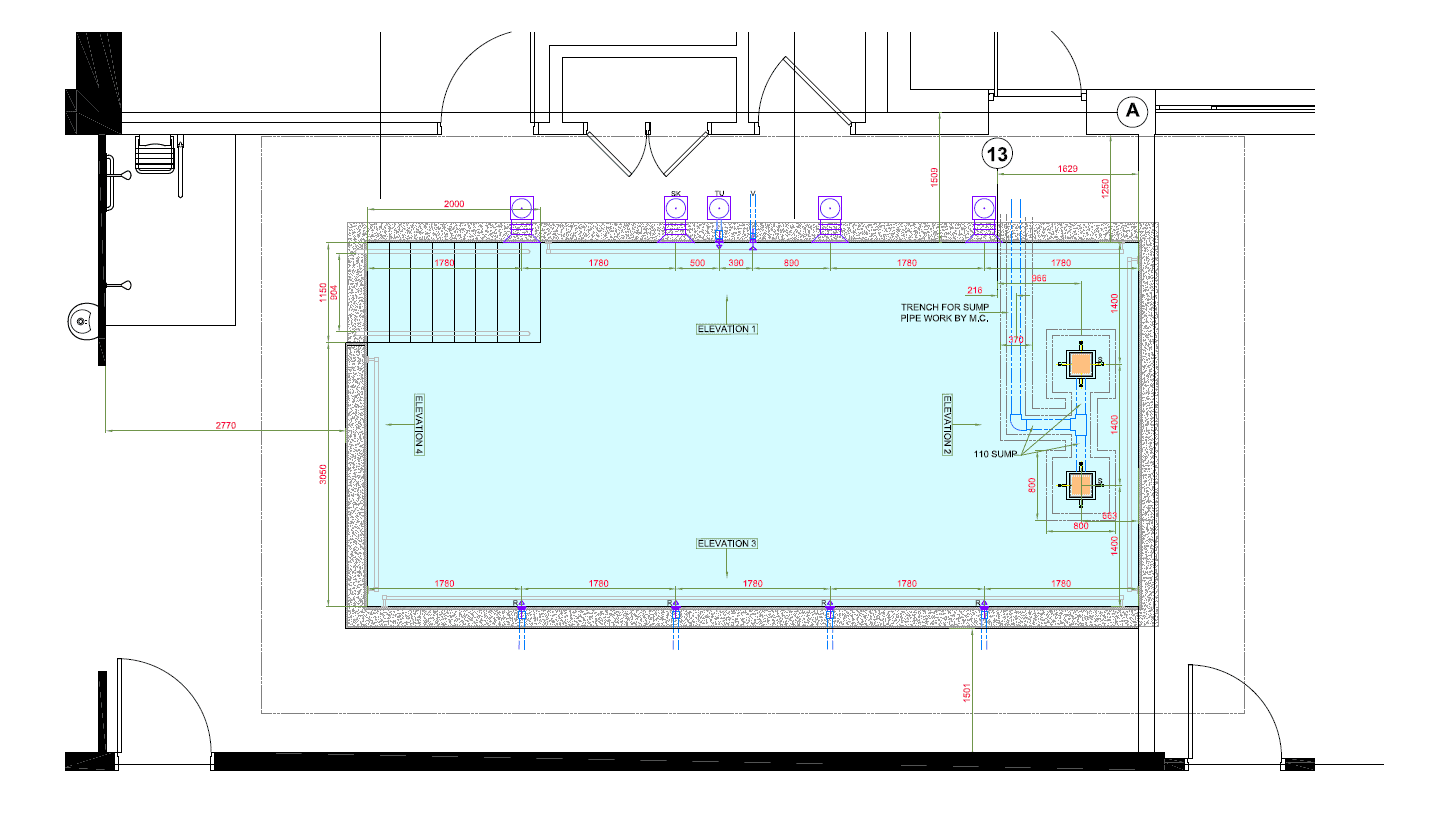
2. Permits and Approvals:
- Obtain the permits and approvals from the local authorities and adhere if there are any specific norms or building codes for constructing the swimming pool
- Your contractor can guide you through the paperwork and submission process.

3. Excavation:
- The construction process starts with excavation, where the ground is cleared and levelled to create the pool's footprint.
- Professional excavation machinery is used to ensure precision and efficiency.
- The depth and shape of the pool are carefully marked and excavated according to the design specifications.
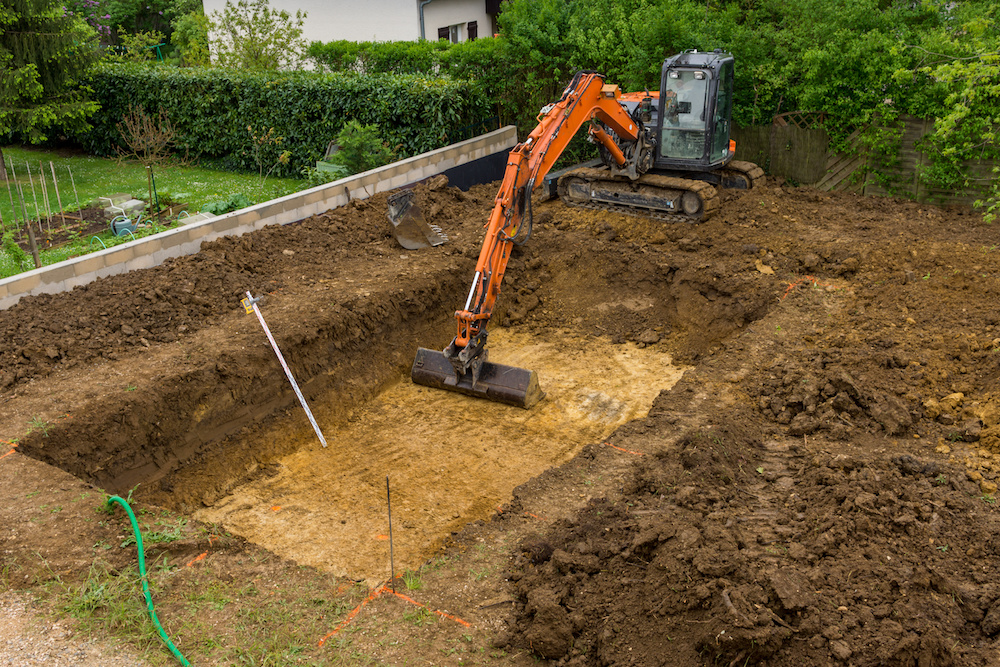
4. Foundation and Structural Support:
- A solid foundation is essential for the stability and longevity of your swimming pool.
- The excavation is reinforced with steel or concrete footings to provide structural support.
- Plumbing and electrical conduits are laid before the foundation is poured or constructed.
5. Plumbing and Electrical Systems:
- Professional plumbers and electricians install the necessary pipelines, pumps, filters, and electrical connections.
- This includes water supply lines, drainage systems, circulation pumps, filtration systems, and any additional features like water jets or heating systems.
Note: All plumbing and electrical work must adhere to safety codes and regulations.
6. Pool Shell Construction:
Depending on the chosen pool type, the construction of the pool shell begins.
- In-ground pools: Concrete is the most common material used. Reinforced steel bars (rebar) are placed to provide structural strength and integrity. Shotcrete or gunite is sprayed over the rebar framework, followed by a process of smoothing and shaping to achieve the desired pool contours.
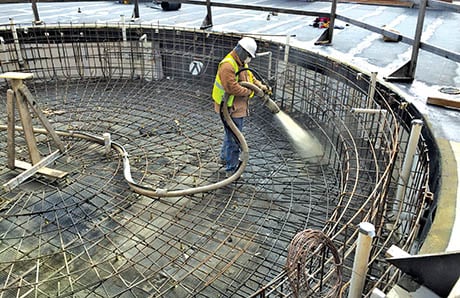
- Fiberglass pools: Prefabricated fiberglass shells are delivered and installed in the excavated area. They are then levelled and secured.
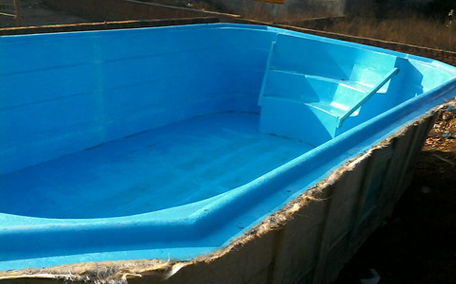
- Vinyl liner pools: A custom-made vinyl liner is installed over the excavated area, secured to the pool walls, and supported by a frame structure.
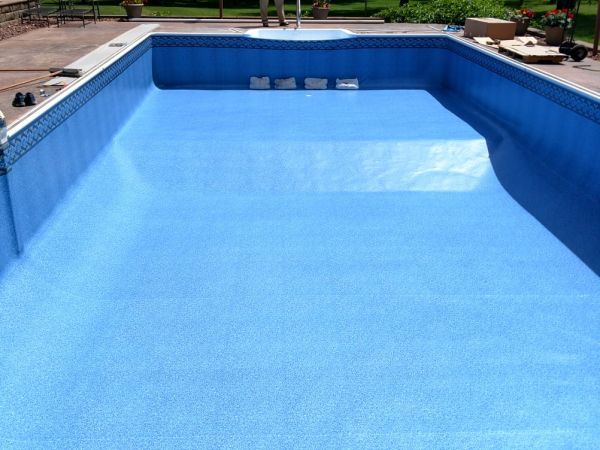
7. Finishing Touches:
- The pool shell is left to cure and gain strength before the finishing touches are added.
- Coping, which is the material around the pool's edge, is installed. This can be made of stone, concrete, or other durable materials.
- Pool decking is constructed, providing a functional and aesthetic space around the pool. Materials such as concrete, pavers, or natural stone can be used.
- Landscaping elements, such as plants, trees, and decorative features, are incorporated to enhance the pool area's visual appeal.
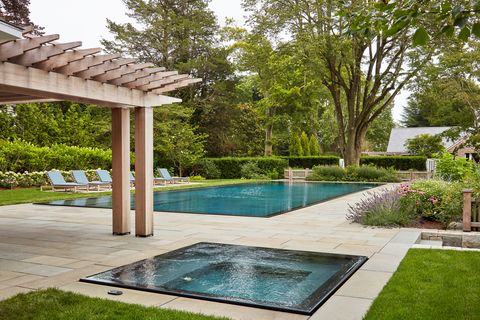
8. Filling and Testing:
- Once the construction is complete, the pool is filled with water. The water source should be clean and treated appropriately.
- The pool's plumbing and filtration systems are tested to ensure proper functionality.
- Water quality parameters, like pH levels, chlorine levels and filtration efficiency, are checked and adjusted as needed.
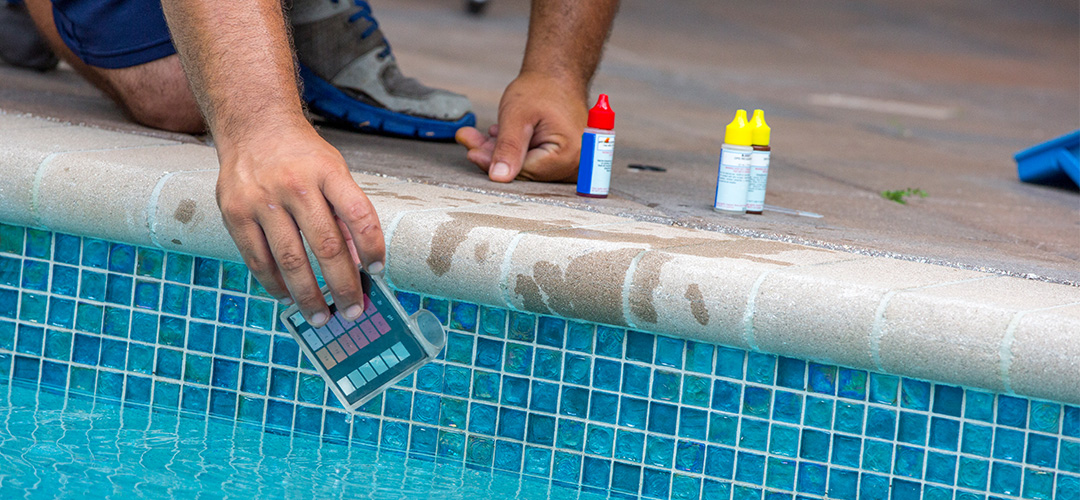
9. Pool Start-Up and Maintenance:
- Once the pool is filled and tested, it's time to start using it.
- Regular maintenance, including cleaning, water treatment, and equipment inspections, is crucial to keep the pool safe, clean, and in optimal condition.
ADVANTAGES OF HAVING A SWIMMING POOL:
- Recreation and Relaxation: A swimming pool provides a refreshing escape from the heat, allowing you and your family to enjoy a leisurely swim or relax by the poolside.
- Improve Health and Fitness: Swimming is a low-impact exercise that provides numerous health benefits, including cardiovascular fitness, muscle toning, and stress relief.
- Increase the Property Value: A well-designed and maintained swimming pool can increase the value of your property, making it an attractive asset for potential buyers in the future.
Building a swimming pool in your home opens up a world of possibilities for relaxation, recreation, and enjoyment. By considering the climate, space, and your lifestyle, you can create a pool that perfectly complements your property. With the right design, construction process, and regular maintenance, your swimming pool will become a cherished feature of your home for years to come.